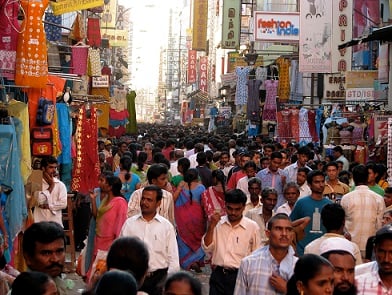
A small concession has been upheld, but little is changed in the country’s regime

Foreign law firms and lawyers cannot practice law in India, the country’s Supreme Court ruled on Tuesday.
Justices Adarsh Kumar Goel and Uday Umesh Lalit in New Delhi also placed foreign legal professionals under the supervision of the Bar Council of India (BCI) while they are in the country. The justices were tackling several appeals of orders made by the Bombay and Madras High Courts.
The justices said that the “practice” of law includes acting in both litigious and non-litigious matters, such as advisory work, instrument drafting, or giving of opinion. They ruled that under the country’s legislation governing lawyers, “advocates enrolled with the Bar Council alone are entitled to practice law, except as otherwise provided in any other law.”
Other individuals can appear only with the permission of a court, authority or person before whom the proceedings are pending, the court said.
The court maintained the two judgments, including a small concession that was then further clarified by the justices.
The Madras High Court earlier ruled that foreign law firms or foreign lawyers were not prohibited from visiting India on a fly-in and fly-out basis to give legal advice to clients in the country regarding foreign law and on diverse international legal issues.
The Supreme Court said that this is permitted, but clarified that only casual visits are not considered as “practice” of law. Regular fly-in and fly-out visits may amount to “practice,” it said.
It said the BCI or Union of India will be free to determine whether or not visits made by foreign firms and lawyers are casual and whether or not their activities fall within giving legal advice on foreign law and international legal issues.
The court also modified the Madras High Court ruling that said that foreign lawyers cannot be prohibited from coming to the country to conduct arbitration proceedings in relation to disputes arising from cross-border contracts.
“We hold that there is no absolute right of the foreign lawyer to conduct arbitration proceedings in respect of disputes arising out of a contract relating to international commercial arbitration,” the justices ruled.
They said that if the rules of international arbitration apply or the matter is covered by the provisions of India’s “Arbitration and Conciliation Act 1996,” the advocates act does not limit foreign lawyers from participating in international arbitration in the country. However, they will be governed by the code of conduct applicable to the legal profession in India, with the BCI and the Union of India having the liberty to frame the rules.
Related stories:
International firm expands reach in India
India’s largest IPO since 2010 succeeds with top firms’ aid